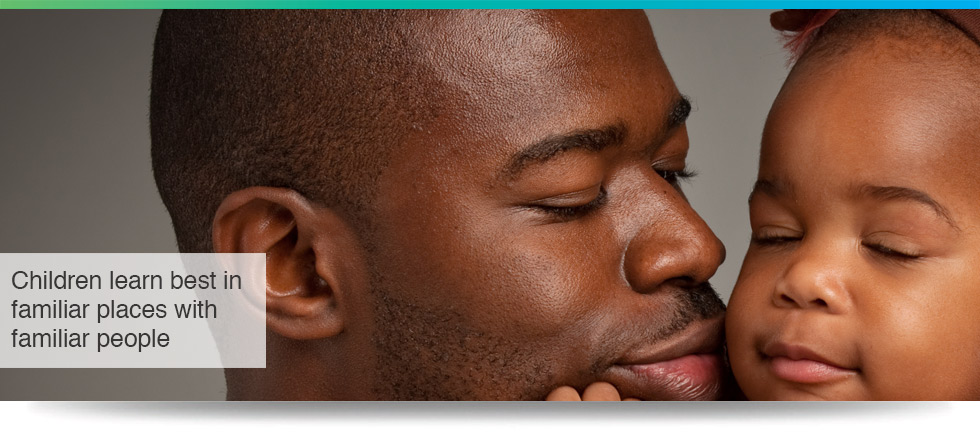Welcome parents and families to our site!
Haga clic aquí para ver esto en español.This website is a resource for professionals working with families enrolled in early intervention programs. Early intervention programs provide services and support for families of infants and toddlers with a developmental delay or disability. Each state has different eligibility requirements. Please check with your state’s early intervention program to determine if your child may be eligible. For families living in North Carolina, eligibility information can be located at www.ncei.org.
The purpose of this website is to provide the best practice information available to further the skills and strategies of professionals working in this field. The goal of early intervention is to support families to enhance their children’s development within everyday routines and activities. We also want to increase families’ abilities and confidence for enhancing their children’s learning and development in both family and community life. Early intervention providers are “consultants” and “coaches” to the family and other primary caregivers, and they want to support you to meet your child’s needs in the context your child’s natural routines and activities.
As early interventionists, we believe parents are their children’s best teachers and that children learn best when they are in familiar places with familiar people. Eating, bathing, playing with siblings, and taking trips to the store are all activities in which learning takes place. Research in child learning tells us that your everyday activities at home and in your community are the best places for your child to learn. We start out getting to know you by learning more about the daily routines of your family. This allows us to help you find ways to help your child participate even more in the activities that are already happening with your family. Early interventionists will support your family in discovering those simple activities that you can do during everyday routines that will enhance your child’s development.
We believe all families have strengths. Families must be involved in the selecting supports and services that are meaningful to them. Each family’s strengths must be valued and accepted. Providers of early intervention services are responsive to and respectful of the cultural diversity of each family. Customs and traditions are an important part of family life.
13 Key Elements of Family-Centered Services
- Recognize that the family is the constant in the child’s life.
- Facilitate true parent/professional collaboration, and not just coordination of services.
- Honor the racial, ethnic, religious, cultural and socioeconomic diversity of families.
- Recognize family strengths and differing ways of coping.
- Share unbiased information with parents on a continual basis for the purpose of supporting their need and ability to make decisions with adequate information.
- Understand the developmental needs of children and families and incorporate these into the service systems offered.
- Provide continuous services to families until such time that the child/family is no longer eligible for services or families indicate they no longer want or need the support provided.
- Offer high-quality professional services in the form of assessment, treatment and recommendations.
- Provide comprehensive, interagency services that include emotional and financial support for the family, as well as educational, therapeutic and medical support for the child.
- Encourage family-to-family support and networking.
- Respect the family’s right to refuse or postpone services offered/recommended.
- Design services that are responsive to family-identified priorities and needs.
- Design accessible services that are flexibly scheduled in natural environments for optimal family participation and benefit to the child.
Adapted from the film Family-Centered Care (1989), Association for the Care of Children’s Health, Washington, DC





